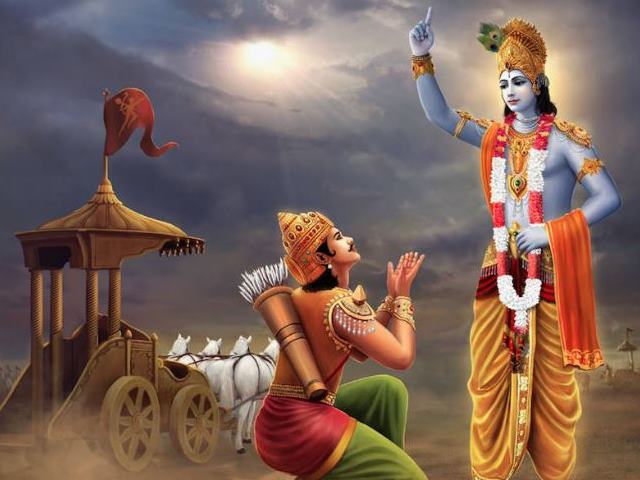(Devutt Pattanaik is an Indian mythologist and author. This column first appeared in Economic Times on October 2, 2021)
- Mahatma Gandhi famously argued that Bhagavad Gita needs to be seen as a metaphor of internal war, and has nothing to do with violence. Western scholars say the book does the very opposite – it actually promotes violence, and is therefore favoured by Hindutva. To understand the contradictory views, we must revisit the 19th century, when a poetic retelling of Bhagavad Gita became popular in Europe. Edwin Arnold had composed ‘The Song Celestial’ based on Bhagavad Gita after the success of his book The Light of Asia, that explained the life of Buddha. Suddenly, two major ideas of India became popular in the intellectual circles of Europe. On one side was Buddha, the pacifist, who wanted to conquer desires and end suffering, and on the other side was Krishna of Bhagavad Gita, motivating Arjun to fight a war despite his resistance. At a time when the British were busy following the divide-and-rule policy, and undermining Hinduism, this provided another example of the religion of the Brahmins as a violent oppressive religion, one that wiped out peace-loving Buddhism, and promoted war, an idea endorsed by Babasaheb Ambedkar who opposed Gandhi on many issues…
Also Read: What can Indian microcons learn from unicorns?: Mint

